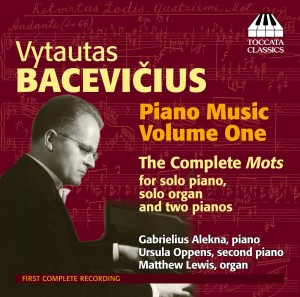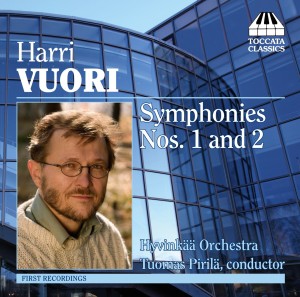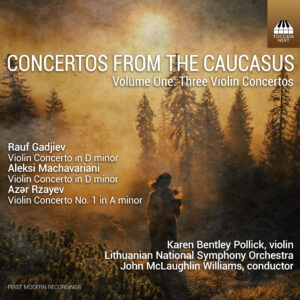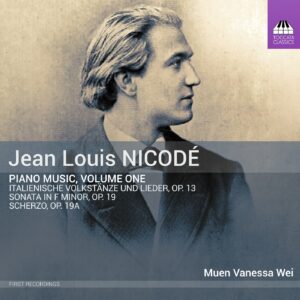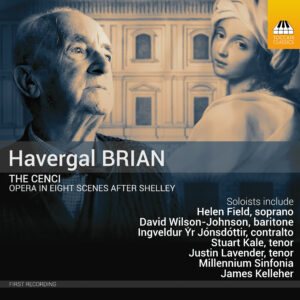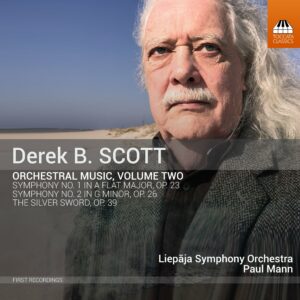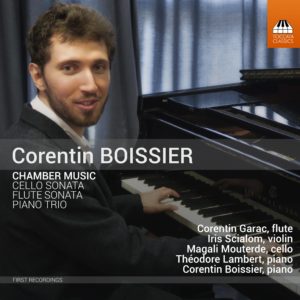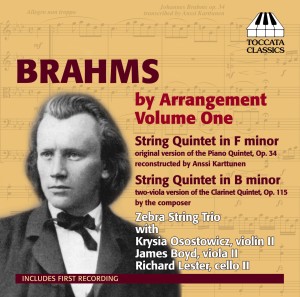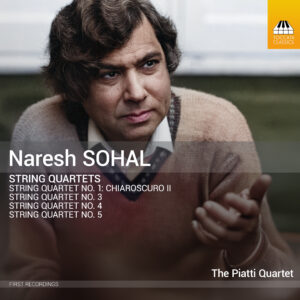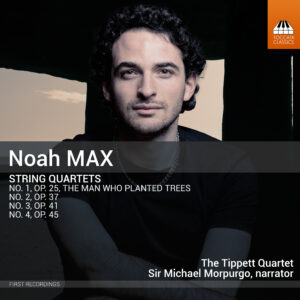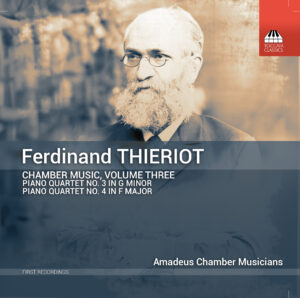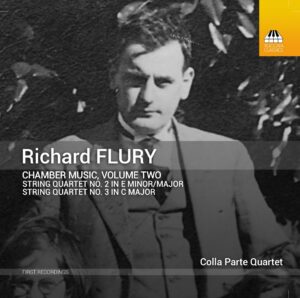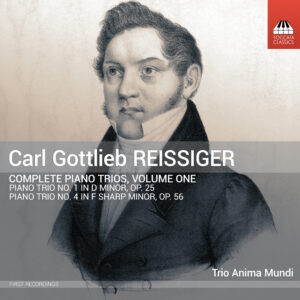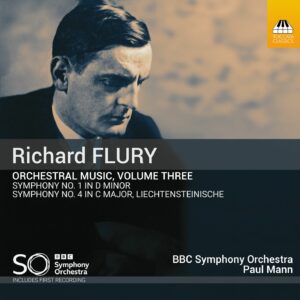Search Results for "The Black Alley Newty Ping" – Page 17
Showing results for black alley net ping
Vytautas Bacevičius: Piano Music, Volume One
The Lithuanian pianist and composer Vytautas Bacevičius (1905-70) is one of the undiscovered pioneers of twentieth-century music. His series of seven Mots ('Words') for keyboard — five for solo piano, one for organ and one for two pianos — were written between 1933 and 1966 and show the evolution of his musical language from the post-Skryabin style of the early works, via the influence of Prokofiev and Stravinsky, to a highly individual modernism, akin to that of two fellow radicals, Varése and Wolpe.
Gabrielius Alekna, piano
Matthew Lewis, organ
Ursula Oppens, piano
Harri Vuori: Symphonies Nos. 1 and 2
Like many contemporary composers, Harri Vuori (born in Lahti, Finland, in 1957) approached the symphony with some hesitation. But having taken the plunge, Vuori has expertly married his modernist's palette of colours with an awareness of symphonic architecture to create two very different works, the First (2003) in the traditional four-movement form and the Second (2007) in a grand arch of five linked movements — Vuori's virtuoso handling of the orchestra producing music that shimmers with light and heaves with energy.
Hyvinkää Orchestra, orchestra
Tuomas Pirilä, conductor
Concertos from the Caucasus, Volume One: Violin Concertos
In the early years of the twentieth century a first wave of composers in the Caucasus laid down the basis of their national schools by grafting the outlines of western classical music onto local folk traditions. By mid-century a second generation took up the challenge more thoroughly, their compositions confidently handling the large forms of the concert hall, though still drawing on regional idioms. The Soviet orthodoxy of the day expected its composers to abide by the rules, but the three composers heard here – two Azeris and a Georgian, all young men when they wrote the violin concertos on this album – brought something fresh and individual to the task, marrying east and west, form and freedom, tradition and originality.
Karin Bentley Pollick, violin
Lithuanian National Symphony Orchestra
John McLaughlin Williams, conductor
Jean Louis Nicodé: Piano Music, Vol. 1
As pianist, conductor and composer, Jean Louis Nicodé (1853-1919) was one of the most highly respected musicians of his day. Born in Posen in Prussia (Poznań in present day Poland), he became a stalwart of musical life in Dresden in the closing years of the nineteenth century. Today his name is as good as unknown, with his music suffering the same fate as his reputation as a performer – although he was a highly accomplished composer. HIs piano music has hints of Chopin, Liszt and Schumann, and the spirit of dance is never far from the surface, but his expansive, and only, piano sonata has a visionary quality with its origins in late Beethoven.
Muen Vanessa Wei, piano
Havergal Brian: The Cenci
The Cenci (1951–52) is Havergal Brian’s operatic realisation of Shelley’s gruesome tale of incest and parricide in Renaissance Italy. The score calls it simply ‘Opera in Eight Scenes’, but it rarely goes in for grand tunes; instead, its dark colours reflect Shelley’s fascination with the struggle between good and evil. Stylistically, it is an unusual but highly effective hybrid: a music-drama focused on the intense delivery of Shelley’s text, with the declamatory style of the vocal lines echoing such recent oratorios as Stravinsky’s Oedipus Rex and Honegger’s Jeanne d’Arc au bûcher, and the freewheeling orchestral writing producing something of a vocal symphony.
Helen Field, soprano
David Wilson-Johnson, baritone
Ingveldur Ýr Jónsdóttir, contralto
Stuart Kale, tenor
Justin Lavender, tenor
Jeffery Carl, baritone
Nicholas Buxton, tenor
Devon Harrison, bass
Serena Kay, soprano
The Millennium Sinfonia
James Kelleher, conductor
Derek B. Scott: Orchestral Music, Volume Two
Derek Scott, born in Birmingham in 1950, has an international reputation as an historian of the British music hall and other forms of light entertainment. But he is an outstanding composer in his own right, his music treading a fine line between a very English whimsy and a profoundly felt and natural response to his (often Celtic) subject matter. These works reveal a master craftsman and natural tunesmith, who manages to unite good humour, unerring technique and deep feeling in music of immediate appeal. His two symphonies – originally written for brass band – embody a return to the formal, Classical clarity of Haydn, though expressed with the satisfyingly beefy textures of the modern orchestra. He lists among his influences Shostakovich and Sibelius and, less predictably, The Beatles and The Kinks.
Liepāja Symphony Orchestra
Paul Mann, conductor
Richard Stöhr: Orchestral Music, Volume One: Music for String Orchestra
These two works for string orchestra were composed on either side of the flight of the Viennese composer Richard Stöhr (1874–1967) from occupied Austria to the USA, and from prominence and danger to liberty and obscurity, and they reflect the change in his circumstances: the Concerto in the Old Style is expansive, witty, energetic and endlessly good-natured, whereas the Second Suite is introspective, understated and deeply felt. These first recordings allow the discovery of two major additions to the repertoire for strings; the Second Suite is also one of the last grand statements of late Romanticism.
Agnieszka Kopacka, piano (Tracks 1–4)
Sinfonia Varsovia
Ian Hobson, conductor
Corentin Boissier: Chamber Music
Corentin Boissier was born in the suburbs of Paris in 1995. For a composer still only in his twenties, he writes music that is unusually direct in its emotional expression and robust and confident in its musical language. His Cello Sonata, in the grand Romantic tradition of Brahms and Rachmaninov, is animated by a wild and resolute energy; and his buoyant Flute Sonata continues the line of the French flute classics of the first half of the twentieth century. The darker Piano Trio sits downstream from those of Debussy, Ravel and, especially, Fauré. All three works bid fair to become major contributions to their genre.
Trio Aralia
Iris Scialom, violin (Tracks 7–9)
Magali Mouterde, cello (Tracks 1-3, 7-9)
Théodore Lambert, piano (Tracks 1-3, 7-9)
Corentin Garac, flute (Tracks 4-6)
Corentin Boissier, piano (Tracks 4-6)
Anatol Vieru: Piano and Chamber Music
The music of the Romanian composer Anatol Vieru (1926–98) is an arresting fusion of classical procedures, avant-garde modernism and folk roots; the influence of his Jewish heritage – he narrowly escaped a pogrom in the ghetto of his native Iaşi in 1944 – also underlies his musical impulses. These divergent influences fed into a musical language that is simultaneously familiar and intriguingly unconventional, with hypnotic, quasi-minimalist passages rubbing shoulders with bursts of wild, gypsy-like energy. It can likewise encompass both an epic sense of scale and chuckling good humour.
Daniela Braun, violin
Anna Carewe, cello
Irmela Roelcke, piano
Brahms by Arrangement, Volume One
Brahms first wrote his Op. 34 as a string quintet before recasting it for two pianos and then as the version for piano quintet known today. In this imaginative reconstruction as a string quintet by the Finnish cellist Anssi Karttunen, the Zebra Trio is joined by some of Britain’s most outstanding string-players, allowing modern listeners to hear a version of the work in textures closer to Brahms’ original thoughts. It is coupled in this recording by Brahms’ own rarely heard version of the Clarinet Quintet, Op. 115, as a string quintet, with a viola replacing the clarinet.
Zebra String Trio, string trio
Anssi Karttunen, cello
Ernst Kovacic, violin
Steven Dann, viola
Krysia Osostowicz, violin
James Boyd, viola
Richard Lester, cello
Naresh Sohal: String Quartets
The British-based Naresh Sohal, born in Punjab in 1939 but resident in the UK for most of his life, was the first person of Indian origin to make his mark as a composer of western classical music, writing works that displayed an unusual fusion of two cultures. The four quartets heard here – two of them being performed for the first time – document Sohal’s stylistic journey: the fireworks of Chiaroscuro II reflect the wild energy of European modernism, whereas the three later works are more considered in manner, incorporating occasional echoes of Indian music into their freewheeling counterpoint.
Piatti Quartet
Noah Max: String Quartets
It is remarkable not only that the London-based Noah Max (b. 1998) should have composed four string quartets by his mid-twenties; their stylistic range is also surprisingly wide. No. 1, which sets Jean Giono’s story ‘The Man who Planted Trees’, narrated here by Sir Michael Morpurgo, has distant roots in English pastoralism, but the refracted lines, furtive colours and ecstatic textures of Nos. 2 and 3 are much closer to European modernism, with echoes of Kurtág and Ligeti. No. 4 is a wild ride, its manic, swirling rhythms interrupted by passages of whispered intimacy that eventually draw it into silence.
Sir Michael Morpurgo, narrator
The Tippett Quartet
Ferdinand Thieriot: Chamber Music, Volume Three
The Hamburg-born Ferdinand Thieriot (1838–1919) not only shared a teacher – Eduard Marxsen – with Brahms; both composers use a very similar musical language, one which is richly melodic and effortlessly contrapuntal. The musicologist Wilhelm Altmann wrote that ‘Thieriot’s chamber music is without exception noble and pure. He writes with perfect command of form and expression’ – as the works on this third Toccata Classics volume prove, in their exquisite balance of depth and beauty.
Amadeus Chamber Musicians
Dmitriy Daniel Askerov, violin
Jenny Joelson, viola
Luzi Dubs, cello
Rebecca Ineichen, piano
Richard Flury: Chamber Music, Volume Two
The exploration of the music of the Swiss composer Richard Flury (1896–1967) on Toccata Classics continues with this first recording of two more of his seven string quartets. Flury was himself a gifted violinist, and these works – written for personal pleasure and for musician friends – observe the classic definition of the string quartet as a conversation between four equal partners, with Flury’s many years of practical music-making producing quartet-textures that are thoroughly idiomatic, even masterly. Both works speak a rich late-Romantic language similar to that of composers such as Korngold, Schmidt and Zemlinsky and encompass a gratifying range of emotions, from touching introspection to bucolic cheer.
Colla Parte Quartet
Georg Jacobi and Susanna Holliger, violins
Friedemann Jähnig, viola
Eva Simmen, cello
Carl Gottlieb Reissiger: Complete Piano Trios, Volume One
In his day the now-forgotten Carl Gottlieb Reissiger (1798–1859) was highly esteemed, both as conductor and composer; indeed, his presence in Dresden from 1826 made it one of the main operatic centres in Germany. He wrote nine operas himself, as well as a huge quantity of vocal music (including at least twelve Masses), and his large output of chamber music boasts no fewer than 27 piano trios. These two early exemplars in this first-ever complete recorded cycle of those trios have a Mendelssohnian elegance and clarity, deepened here and there by a touch of Beethovenian pathos. Schumann was an enthusiast: ‘When I think of Reissiger’s trios, the words lovely and jewel-like come to mind. These choice and lovely works remind one of a chain of flowers. […] His music never fatigues the ear, but holds our attention to the very end’.
Trio Anima Mundi
Richard Flury: Orchestral Music, Volume Three
The First and Fourth Symphonies of the Swiss composer Richard Flury (1896–1967) both have a strong sense of place. They retain a hint of Bruckner but are fluid rather than monumental. The First is lyrical and grandiose in equal measure, perhaps reflecting the grandeurs of the Swiss landscape. The Fourth was inspired by memories of childhood visits to Liechtenstein and spins out tunes and atmosphere with the profligacy of a Hollywood film score. The existing material for both works was full of errors; this recording is the first to return to Flury’s manuscripts and expunge the wrong notes.
BBC Symphony Orchestra
Paul Mann, conductor
Stay In the Know
JOIN THE TOCCATA NEWSLETTER
"*" indicates required fields
By visiting our site, you agree to our privacy policy regarding cookies, tracking statistics, etc.
